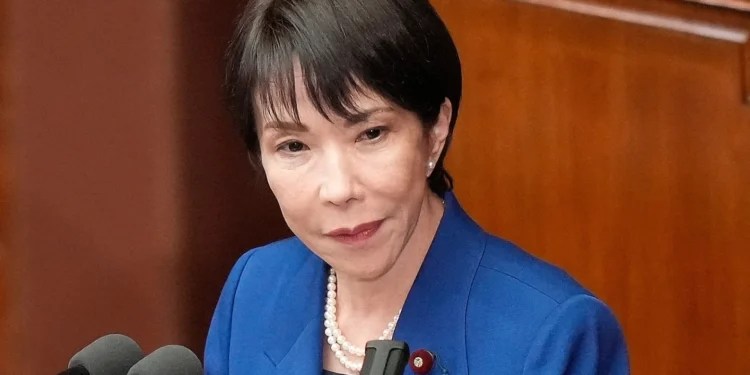As competition in Ghana’s Oil Marketing Companies (OMCs) intensifies, there are rising concerns about its impact on product quality and volume.
The West Africa Director of CUTS International, Mr. Appiah Kusi Adomako, has addressed concerns over the importance of regulatory oversight. Mr. Adomako believes that while competition can drive prices down, it may also tempt some OMCs to compromise on quality and volume to remain competitive.
Mr. Adomako called on the National Petroleum Authority (NPA) and the Ghana Standards Authority (GSA) to intensify their monitoring and enforcement activities to protect consumers. He pointed out that:
“The NPA is responsible for looking at the quality of the product, whereas the Ghana Standards Authority is also responsible for ensuring that the volume that is delivered matches up to what the consumers are paying for.”
Mr. Appiah Kusi Adomako the West Africa Director of CUTS International
While competition is typically seen as beneficial to consumers by lowering prices, Mr. Adomako expressed concern that it might not always work in the consumers’ favor if the necessary safeguards are not in place. He elaborated: “At this time, if care is not taken, the competition may not work in the interest of the consumer.”
Consumer Vigilance and Awareness
Mr. Adomako also advised consumers to be vigilant when purchasing fuel, emphasizing the importance of ensuring that they are receiving the correct volume of fuel for which they are paying. Mr. Adomako reminded consumers that OMCs are required by law to have a 10-liter can available at filling stations for volume verification. This measure enables consumers to confirm that they are receiving the accurate amount of fuel. He stated:
“Whenever you go to any filling station and you want to be sure that they are delivering the volume that you are buying, you can ask them to bring their 10-liter can.”
Mr. Appiah Kusi Adomako the West Africa Director of CUTS International
If the fuel dispensed does not match the 10-liter mark on the can, consumers have the right to take action. Mr. Adomako recommended two courses of action for consumers in such situations:
“You can write, you can call NPA on their hotline, and also, you can leave the station because they are not delivering the right volume.”
Mr. Appiah Kusi Adomako the West Africa Director of CUTS International
Another notable development in the competition landscape is the return of Virgin Atlantic to the Accra-London route after an 11-year hiatus. This move is expected to challenge the monopoly previously enjoyed by British Airways on this route. Mr. Adomako highlighted the reasons for Virgin Atlantic’s earlier exit from the market, attributing it to their inability to secure a favorable departure slot. He explained: “…Virgin Atlantic could not get a slot to depart in Accra in the evening and arrive in London Heathrow in the morning.”
This scheduling issue led to empty business-class seats, as business travelers typically prefer evening departures and morning arrivals to accommodate their schedules. Mr. Adomako expressed hope that both British and Ghanaian aviation authorities would allow Virgin Atlantic to secure the necessary time slots to compete effectively on this route. He added:
“We hope that British airport authorities and the Ghana Civil Aviation Authority will give Virgin Atlantic the opportunity to be able to depart Accra in the evening and arrive at Heathrow in the morning.”
Mr. Appiah Kusi Adomako the West Africa Director of CUTS International
The Need for Government Support in Aviation Competition
Mr. Adomako also called on the Ghanaian government to play a more active role in fostering competition within the aviation sector. Mr. Adomako pointed out that, the high cost of air travel in Ghana and other African countries is partly due to the lack of competition on certain routes, which are often dominated by European and American carriers. According to Mr. Adomako:
“To be able to break this dominance and monopoly, what government can do is that government can allow, let’s say, an Ethiopian airline to fly from Accra to most of these cities where airfares are high.”
Mr. Appiah Kusi Adomako the West Africa Director of CUTS International
Mr. Adomako argued that allowing new entrants into the market would create competitive pressure on dominant players, ultimately leading to reduced airfare for consumers. In addition to his comments on the OMC and aviation sectors, Mr. Adomako also provided an update on efforts to get the Consumer Protection Bill passed in Ghana. According to Mr. Adomako, the bill has been stuck at the Ministry of Trade for 19 years without being brought before Parliament.

Mr. Adomako emphasized the importance of this legislation for protecting the rights of Ghanaian consumers, whose rights, he noted, are currently violated with impunity in the absence of legal protections. Mr. Adomako stated that CUTS International, along with the Consumer Protection Agency, IMANI, and Kofi Kapito, will hold a major press conference to draw attention to this issue and urge the government to act. He remarked: “Ghanaians cannot wait for another 4 years to allow this Consumer Protection Law to be passed.”
The absence of this law has left Ghanaian consumers vulnerable, and Mr. Adomako called on the government, particularly the Ministry of Trade, to expedite the process of getting the bill to Parliament. Mr. Adomako also reminded the government that the passage of the Consumer Protection Bill was a promise made by the New Patriotic Party (NPP) in its 2016 political manifesto. He concluded:
“Almost 7 years down the line, the bill is still lying at the Ministry of Trade, and I think that government needs to put pressure on the Ministry of Trade to make sure that the bill gets to Parliament as soon as possible.”
Mr. Appiah Kusi Adomako the West Africa Director of CUTS International
Mr. Appiah Kusi Adomako’s statements underscore the importance of regulatory vigilance in ensuring that competition benefits consumers, rather than leaving them vulnerable to exploitation. Mr. Adomako also highlights the need for government intervention to foster competition in the aviation sector and to finally pass the long-awaited Consumer Protection Bill. As Ghana continues to develop, the rights and interests of consumers must remain at the forefront of both regulatory and legislative efforts.
READ ALSO; The Ghanaian Music Industry: A Call for Structural Change























